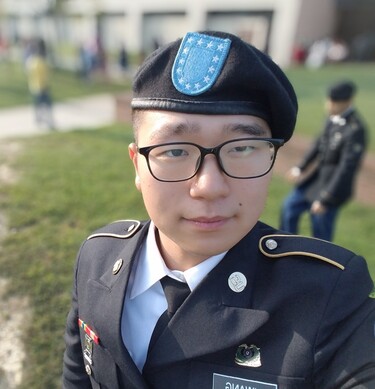Resources
- Research Seminars. Provides a list of online seminars/conferences in mathematics, computer science, physics, and biology. Open to everyone.
- For Purdue students: Boiler Grades has grade distributions of previous offerings of all courses and professors in Purdue. BoilerClasses and Purdue.io should make your life easier by not having you to log into UniTime and interact with it.
- Mathcha makes tikz easier. Also, quiver (tikzcd-editor), FSM Designer, and detexify are very useful.
- TikZ for Cryptographers: Goldmine of cryptography-related figures, ranging from hash functions to garbled circuits.
- ISGCI, an encyclopaedia of graph classes. Then there are EC Zoo for error correcting codes and Complexity Zoo for computational complexity classes.
- Number Theory Web. The website that lists out all number theory listings (conferences, open positions, etc.). Usually up to date.
- Topologies comparison. Interact-able graph of Grothendieck topologies picturing their properties and relationships. Made by Pieter Belmans.
- How to write a solution. Written from math olympiad perspectives, but still valid for professional mathematics/physics/computer science.
- Project Euler, basically a math-y version of LeetCode and Codeforces. See also Coding Challenges if you are an aspiring SWE and want to do something more 'realistic' and practical.
- Google Project Zero. Stay up-to-date with recent cybersecurity issues in detail! There is also Will's Root focusing on CTF Writeups and Pentestings.
- WeChall, OverTheWire, picoCTF, and Cryptohack have interesting CTF-like cybersecurity challenges. Very fun! If you are a Purdue student, please also give our own internal CTF a shot too!
- Red Blob Games: Interactive (and cute!) tutorials for math and algorithms. See also Complexity Explorables for complex systems.
- Don't help me say no. A great list of mistakes that you should avoid at all costs in your job applications, written by a Purdue CS Ph.D. alum. Also, see Help me say yes.
- OURFA²M² organized by great people provides helpful information for undergraduate math majors.
- Very extensive list of advices and Questions to ask when considering a graduate school program written and compiled by Vanessa Sun at MIT.
- Crypto Mentoring workshop, generic yet extensive suggestions for junior cryptographers (e.g., Ph.D. students).
- AMS Collaboration Distance and Mathematics Genealogy.
Online Lectures
Let us not forget to thank all those people who generously made their courses and seminars open to public for us.- MIT OCW (Youtube). It's MIT OCW, so I assume I don't need to put any explanations here. I particularly recommend: 6.890 (6.892), 18.S097, and 18.217 (18.225).
- Ryan O'Donnell (Youtube) at CMU has made some golden lectures in complexity theory. I recommend Analysis of Boolean Functions. He is one of the pioneers of this field.
- ICTP (Youtube) and their Diploma Programme upload the recordings of their lectures which are roughly equivalent to the MS/PhD level math courses in the US.
- Enjoying Math by Gunhee Cho at UCSB actively uploads a wide range of rigorous lecture series in mathematics, from undergraduate courses to recent research topics. Lectures are mostly in Korean, but the notes are in English except very few.
- Pretty intensive algorithms lecture series (course notes and videos) by Kent Quanrud at Purdue: Undergrad algorithms (S22), Graduate algorithms (F24), and Randomized algorithms (S24).
- A course on topological quantum computing QCAT was once offered at UIUC by Eric Samperton. He is now in Purdue, taught an introductory course on quantum computing in 2024.
- CTF b00tc4mp (Youtube) hosted in 2020 by b01lers, Purdue CTF Team. Here is an outline of an introduction to CTF written by b01lers.
- Mary Wootters at Stanford made great introductory courses in Coding Theory and Randomized Algorithms.
- Online lecture series on introductory and recent progress in zero-knowledge proof ZKP MOOC at UC Berkeley.
- For introduction to differential privacy, check out this course Algorithms for Private Data Analysis by Gautam Kamath at Waterloo.
- Foundations of Probabilistic Proofs by Alessandro Chiesa at UC Berkeley.
- Computational Algebraic Topology (Course Webpage), basically the fundamentals of TDA, by Vidit Nanda at Oxford.
- Computer Networks (UMass CS 453) pre-recorded lectures and interactive exercises, following Kurose-Ross 8th Edition, created by Jim Kurose (Wiki) at UMass Amherst, one of the the authors themselves.
- Indexed list of lecture videos on Mathematical Foundations of Computer Networking, by Srinivasan Keshav at Waterloo, directly following his book with the same title.
- This Youtube channel has recordings of UWaterloo's algebraic geometry (sheaves and schemes) reading seminar, which I found pretty straightforward to follow.
- Differential Geometry in Graphs! Though it does not seem like it covers Ollivier-Ricci curvatures for some reason, unfortunately.
- I faded completely away from geometric analysis, but this special topics course in Ricci Flow by Richard Bamler at Berkeley that he opened to public (with his permission) was undoubtedly a legend.
